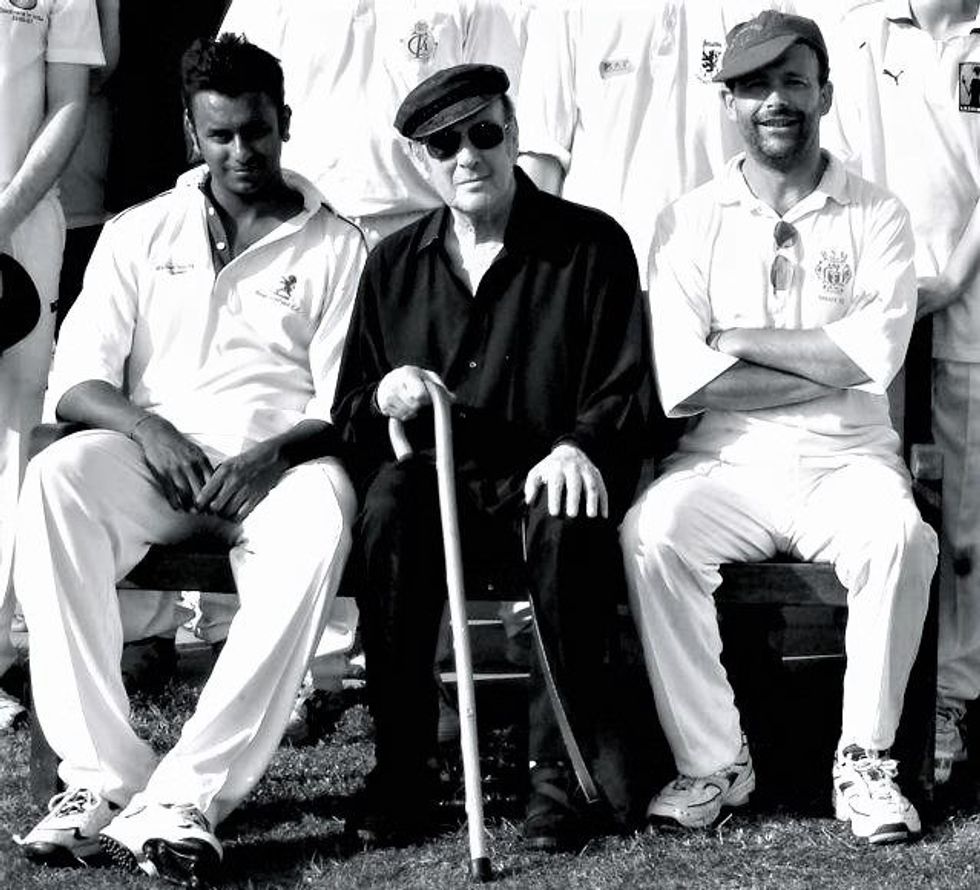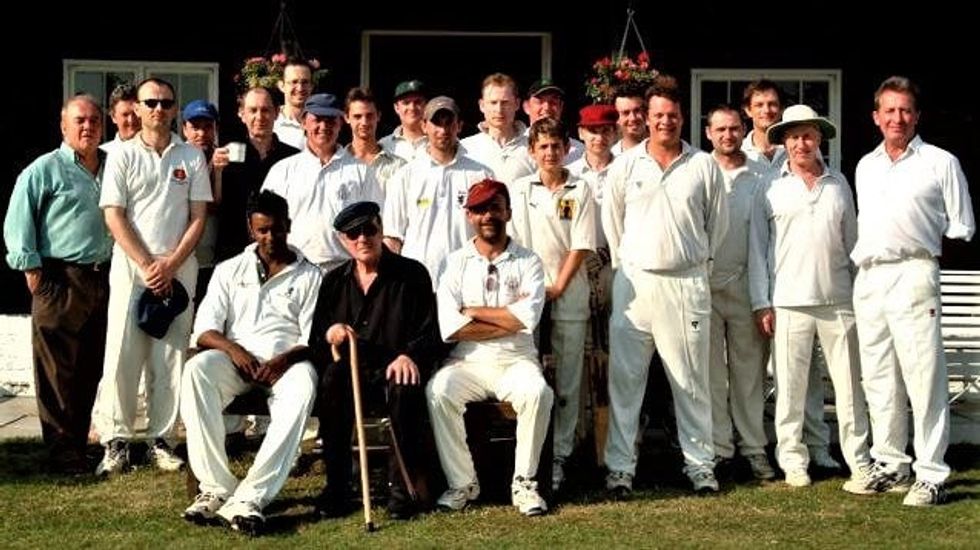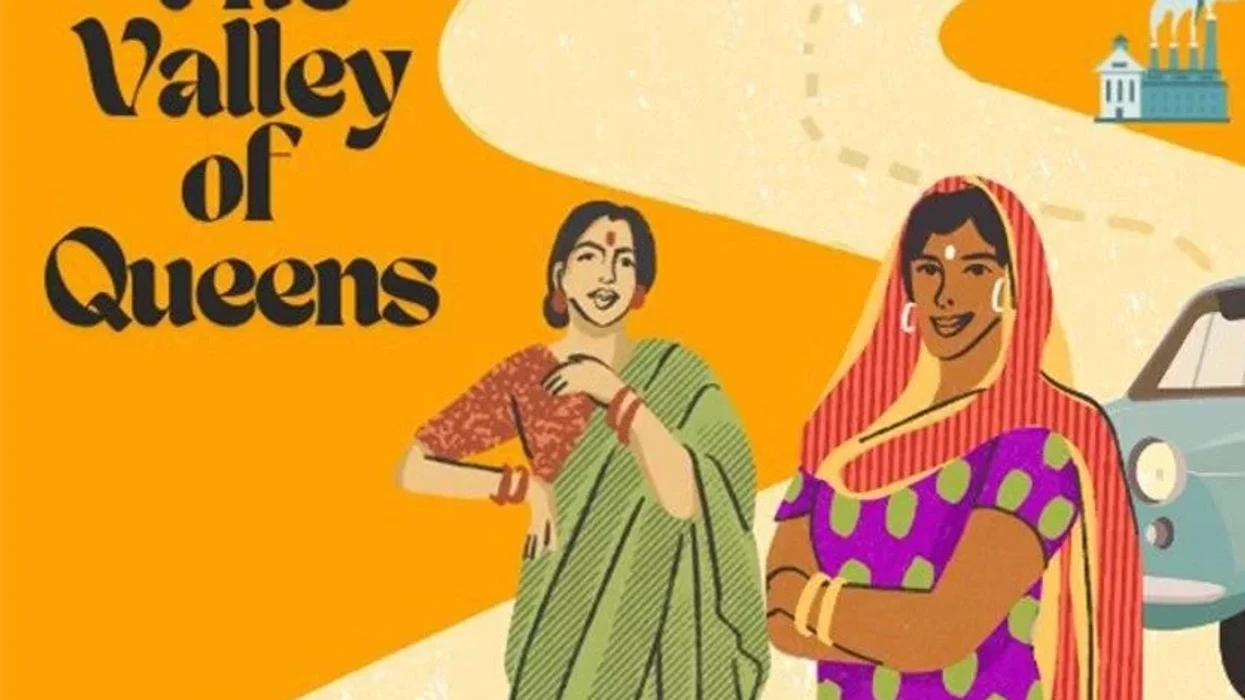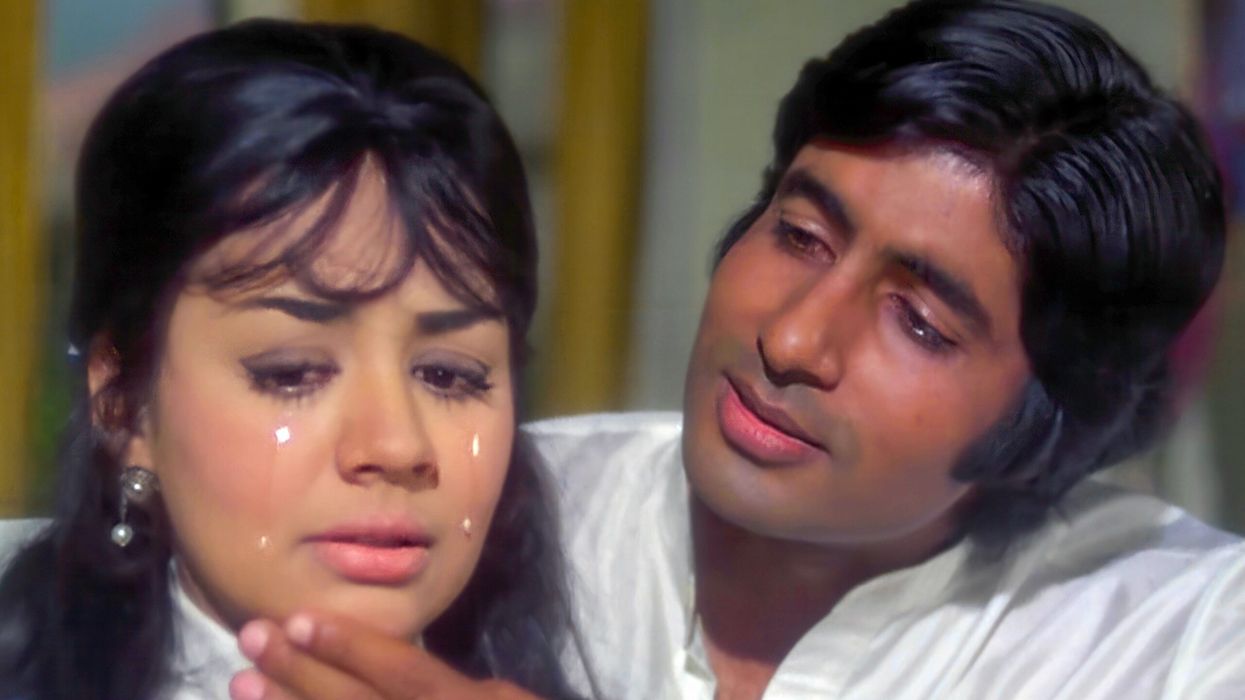IT WAS fun catching Shomit Dutta’s play, Stumped, at Hampstead Theatre before the run ended.
The two-hander involves an entertaining, though not always friendly, conversation between the great Nobel Prize winning playwrights, Harold Pinter and Samuel Beckett, played by Andrew Lancel and Stephen Tompkinson respectively, as they wait in a cricket pavilion before going out to bat.
The two men were certainly friends, but never actually played cricket together.

For those who don’t follow cricket, a batsman is “stumped” when he wanders out of his crease and has the bails taken off the top of the three upright stumps by the wicketkeeper. He (or she) is then “out” and has to take the walk of shame back to the pavilion. Stumped also means someone baffled by a question.
The game the audience is watching in Stumped is painfully slow. Beckett, who is the next batsman in, has got his pads on. He is also keeping the score, with a scorebook on his knees. Every so often he gets up to change the score on a little blackboard. The play begins with the score at 25 runs for two wickets after nine overs.
In real life, what Pinter lacked in cricketing talent, he more than made up for through his passion for the game.
In Stumped, he lasts three balls and is out for a duck (zero). Beckett does a little better and manages 18. Their side achieves a total of 90 and loses the game.
Pinter’s great talent was to turn his side’s seemingly winning position into defeat. The two men find their stay in the pavilion somewhere in the Cotswolds is extended. As night falls, they discover all the other players have left, the lift they had hoped for from someone with a car does not materialise, and there appear to be no trains running either. All they have to comfort each other as they bicker is a bottle of whisky.
Beckett also decides to analyse Pinter’s three-ball stay at the crease in excruciating detail.
Pinter had run out the best batsman in his side, Beckett recalls, twisting the knife: “He was left stranded, halfway down the pitch. Run out by 10 yards, without even facing a ball. The precise sequence of your calling – correct me if I’m wrong – was ‘Yes…..No….Wait.’ Why the ‘wait’? After the ‘no’. What did it add?
A little later, as Beckett begins, “The next ball….”, Pinter protests, “Must you go on?” Beckett: “I must. And you must hear it.”
Pinter: “You’re enjoying this.”
Beckett (serenely): “Not at all. The next ball, technically your third, on account of the earlier no-ball, you were clean-bowled by a delivery that you claim swang both ways in the air.”
Pinter (feebly): “It did.”

A little on the history of Hampstead Theatre. After university, when I began my first job on the Hampstead News, part of the North London Press group, the Hampstead Theatre Club, part of my beat, used to be in Holly Bush Vale near Hampstead Tube station. Now Hampstead Theatre is by Swiss Cottage Tube station, with Stumped put on in the smaller of two stages, the 80-seat Hampstead Downstairs.
Shomit, who read classics at Oxford, now spends three and-a-half days in the week at Alleyn’s, a “tolerant” co-educational fee-paying school in Dulwich, where he enjoys teaching “Latin and Greek and classical civilisation”.
Latin and Greek are “good subjects because they do train the mind in many ways,” he tells Eastern Eye. “They are extremely logical languages.” As they come from the Indo-Aryan group of languages, “I can pick up bits and pieces of Sanskrit, and it helps I’m a Bengali speaker”.
His father, Nirmalendu Dutta, who is now 86, and his mother, Jayasri Banerjee, five years younger, met as college students in Calcutta [now Kolkata]. They married in a registry office – her parents would not give permission as they were of slightly different castes – and came to England. Happily, reconciliation followed in time. Shomit’s father worked in computers, his mother as a doctor in the NHS.

Shomit grew up in Denham, then attended Gayhurst prep school in Buckinghamshire, and was captain of cricket at the Royal Grammar School, High Wycombe (where his “very good” classics teacher inspired him to apply to University College, Oxford, to read classics). He says: “My father introduced me to cricket – we used to play in the garden.”
He also did an MA at King’s College London, before doing a PhD in Oxford, changing colleges to Lady Margaret Hall. Pinter played for the Gaieties Cricket Club where Shomit has been a member for 20 years. Over the years, playing for the Gaieties, The Stage, the Gardeners (set up by his contemporaries at Oxford), and a few games for the Sussex Martlets, Shomit reckons he has scored 35 to 40 centuries. Until recently, he topped the batting averages most years at the Gaieties, where he got to know Pinter in the last nine years of his life.
Pinter gave up playing, did a spot of umpiring, but remained a loyal member. He died in 2008, and Beckett in 1989. Having had the outlines of Stumped in his mind for many years, Shomit finally wrote it during lockdown. Before Hampstead, it had a run at Cambridge Arts Theatre and the Theatre Royal Bath. A plan to film Stumped at Lord’s and stream it with a live audience was cancelled because of the period of mourning for the Queen. Stumped was inspired partly by The Frogs, a comedy written by the ancient Greek playwright Aristophanes. It features playwrights, as does Stumped.
“My play is very much about failure in cricket, not least because Harold’s experience of cricket was tough,” explains Shomit. “He played at a good level, but he was not one of the stronger players.”
Pinter’s highest score was 39. His favourite player was Len Hutton, he backed Yorkshire (where he had lived as a small boy) and Middlesex, and “was a great fan of [Sachin] Tendulkar”. Pinter also read voraciously about cricket.
Beckett, who was Irish, gave up cricket at 22 or 23 after moving to Paris.
“In a way, Beckett is holding Pinter to account for what happened on the field in an ironic way that he’s enjoying,” says Shomit. “I got some of that from a speech Harold... recorded for a 70th anniversary dinner of our Gaieties Cricket Club.
“And in it, he describes this game where he was captain and went all the way to Dover. He completely messed up again. He said he dropped two catches. He said he went into bat quite low down the order, but immediately ran out the guy that was winning the game for Gaieties and then was clean-bowled himself. So I’ve kind of reworked that.”
Shomit has avoided writing about Asian arranged marriages: “I want to write what interests me. I don’t want to be told I must write about my origins.”
The two actors in Stumped, directed by Guy Unsworth, would be happy to go on tour in the north of England. But Eastern Eye readers can catch a digital version of the play.
Stumped is available to stream exclusively through Original Online until November 8, 2024. Visit originaltheatre.com/productions/ stumped. The fee is from £8.99 per month for access to Stumped as well as Original Theatre’s library of award-winning entertainment. Non-members can rent a show for £5.99, giving them 48-hour access from the time of payment.






 Neetika Knight
www.easterneye.biz
Neetika Knight
www.easterneye.biz












 Raj Ghatak
Raj Ghatak
 Isaac Newton’s birthplace, WoolsthorpeManor, Lincolnshire
Isaac Newton’s birthplace, WoolsthorpeManor, Lincolnshire
 Women from the Happy Hour Project engaged in creative workshops
Women from the Happy Hour Project engaged in creative workshops